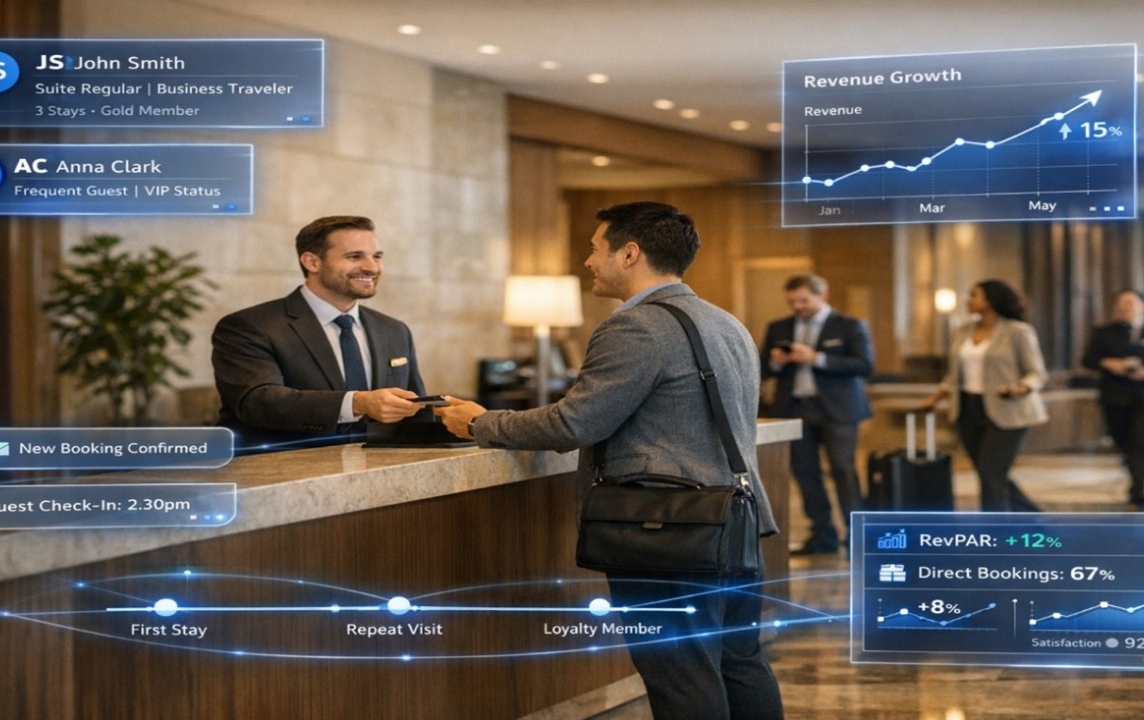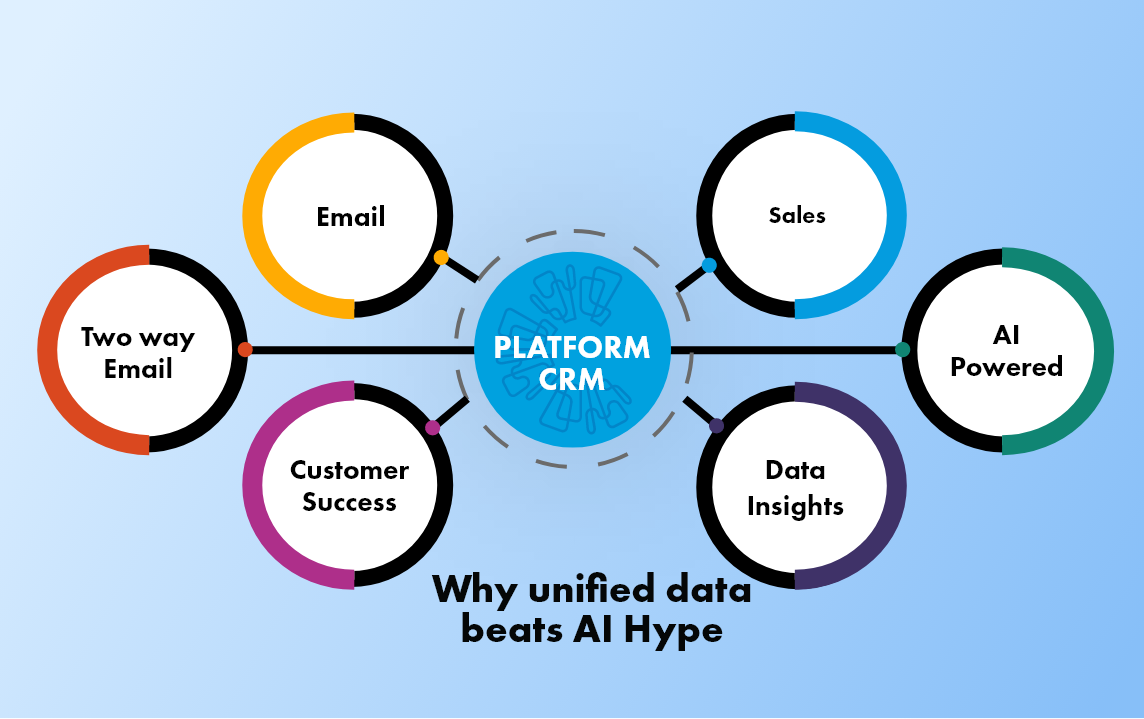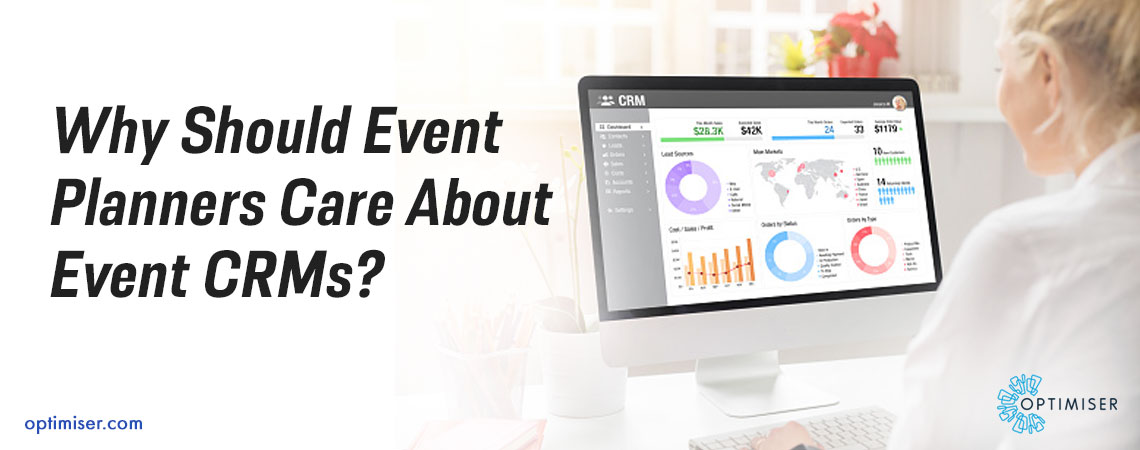
Why Should Event Planners Care About Event CRMs?
CRM and event management software help event organisers manage interactions with attendees, sponsors, exhibitors, and other stakeholders involved in the event. It allows event organisers to collect, store, and manage information about their contacts, such as registration information, contact details, past interactions, and preferences.
The main purpose of an event CRM is to help event organisers streamline their operations and increase the effectiveness of their marketing efforts. By centralising all contact information in one place, event organisers can better target their communications, improve their lead-generation efforts, and provide personalised experiences for attendees.
An event CRM typically includes features such as:
- Contact management: the ability to capture and store contact information from attendees, sponsors, exhibitors, and other stakeholders.
- Marketing automation: the ability to create and send targeted communications to different segments of contacts, based on their interests and behaviours.
- Sales pipeline management: the ability to track the progress of sales opportunities and follow up with leads.
- Reporting and analytics: the ability to measure the effectiveness of marketing campaigns and identify areas for improvement.
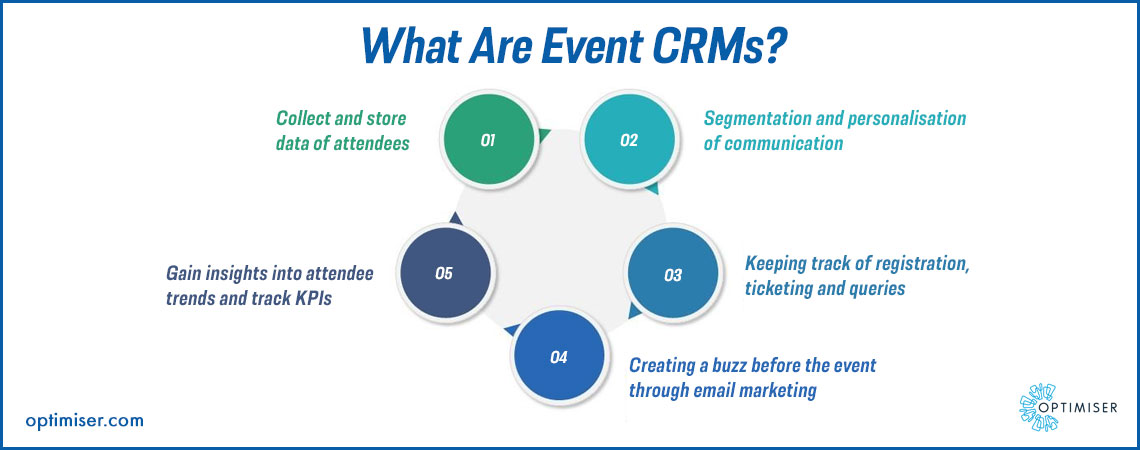
Why Should Event Planners Care About Event CRMs?
The best CRM software for event management can help event planners manage all aspects of their events, from registration and attendee management to marketing and reporting. Here are some of the key reasons why event planners should use CRM software for event management:
Streamline event management operations: An event CRM can help event planners streamline their operations by providing a central platform to manage all aspects of their events. This includes managing registrations, attendee information, event schedules, and communications. An event CRM can also help automate routine tasks, such as sending confirmation emails and tracking payments. This can save time and effort, allowing event planners to focus on other important tasks.
Enhance attendee experiences: An event CRM can help event planners provide a personalised experience for attendees by capturing and storing their preferences and past interactions. For example, an event CRM can capture data about which sessions or workshops attendees have attended in the past and what topics they are interested in. This information can be used to create personalised schedules and recommendations, which can improve the attendee experience and engagement levels.
Improve marketing effectiveness: An event CRM can help event planners improve the effectiveness of their marketing efforts by providing insights into the interests and behaviours of their contacts. For example, an event CRM can track which emails were opened and clicked, which sessions were attended, and which social media posts were engaged with. This information can be used to personalise communications and tailor marketing efforts to specific segments of attendees. By targeting communications more effectively, event planners can increase attendance rates and improve the overall success of their events.
Increase revenue: An event CRM can help event planners increase revenue by providing tools to manage sponsorship and exhibitor opportunities, track sales leads, and identify cross-selling and upselling opportunities. For example, an event CRM can track which sponsors or exhibitors have shown interest in previous events and provide recommendations for similar opportunities. Additionally, an event CRM can track leads generated from marketing efforts and provide insights into which leads are most likely to convert into sales.
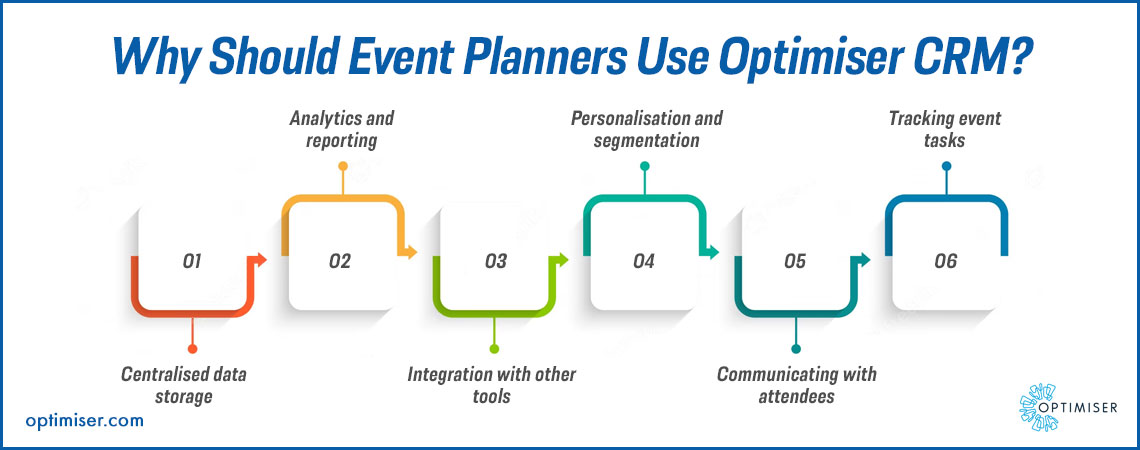
Also Read: Six Principles that Lead the Foundation for a Successful Branding
Provide better reporting and analytics: An event CRM can help event planners track and measure the success of their events by providing reporting and analytics tools. For example, an event CRM can provide insights into attendance rates, session attendance, revenue generated, and marketing effectiveness. This information can be used to identify areas for improvement, optimise marketing efforts, and demonstrate ROI to stakeholders.
Improve team collaboration: An event CRM can improve team collaboration by providing a shared platform for managing events. This can improve communication and coordination between different teams, such as marketing, sales, and event operations. By using an event CRM, event planners can avoid communication silos, reduce errors, and improve overall productivity.
Optimiser CRM For Event Management
Optimiser CRM for event management software provides a central platform for managing all event contacts, including attendees, sponsors, exhibitors, and vendors. Event planners can capture and store all contact information in one place, making it easy to access and manage. It allows event planners to create custom registration forms and ticketing options. This can include multiple ticket types, discounts, and promo codes. Attendees can register and purchase tickets online, and event planners can track registrations and ticket sales in real time. The platform provides a range of communication tools for event planners, including email marketing and social media integration. Event planners can send targeted communications to specific groups of attendees and track engagement rates.
Optimiser CRM provides robust reporting and analytics tools, allowing event planners to track attendance rates, revenue generated, and marketing effectiveness. Event planners can use this information to make data-driven decisions and improve the overall success of their events.
Summary
An event CRM can help event organisers increase engagement with their audience, improve the ROI of their events, and build stronger relationships with their contacts over time. By streamlining event management operations, enhancing attendee experiences, improving marketing effectiveness, increasing revenue, providing better reporting and analytics, and improving team collaboration, an event CRM can help event planners create more successful events. With the right event CRM, event planners can save time, reduce costs, and create more value for their attendees and stakeholders.

30 days free trial. No credit card required
 One powerful platform
One powerful platform
 Simple to use
Simple to use
 Comprehensive
Comprehensive

